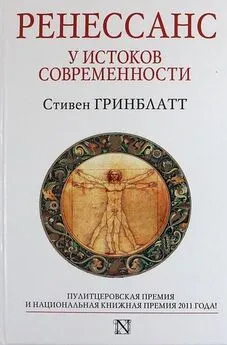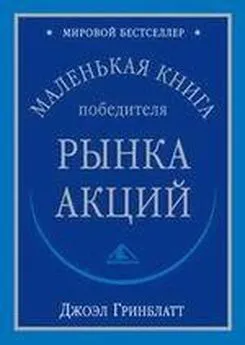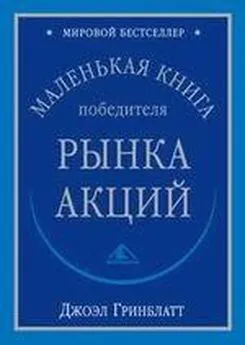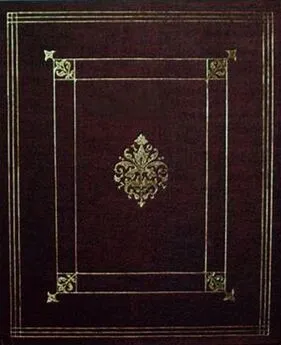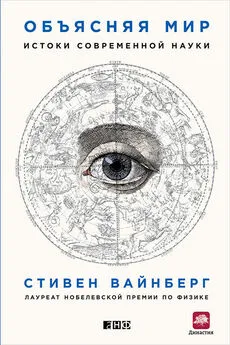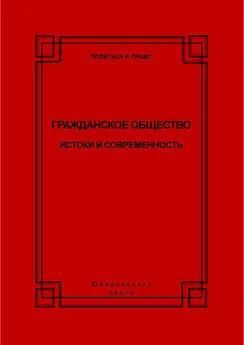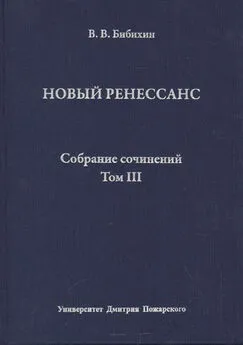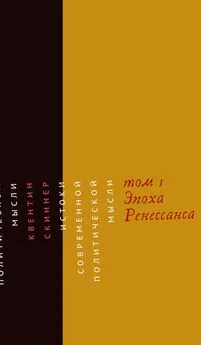Стивен Гринблатт - Ренессанс. У истоков современности
- Название:Ренессанс. У истоков современности
- Автор:
- Жанр:
- Издательство:АСТ
- Год:2014
- Город:Москва
- ISBN:978-5-17-080654-6
- Рейтинг:
- Избранное:Добавить в избранное
-
Отзывы:
-
Ваша оценка:
Стивен Гринблатт - Ренессанс. У истоков современности краткое содержание
Не было бы ни шедевров Леонардо да Винчи и Микеланджело, ни блистательного политического цинизма Макиавелли, ни всей эпохи расцвета наук и искусств, времени создания гениальных произведений живописи, литературы и философии.
Не было бы, если бы однажды собиратель старинных рукописей Поджо Браччолини не натолкнулся в монастырской библиотеке на некий старинный манускрипт…
Так была обнаружена считавшаяся доселе утраченной поэма Лукреция «О природе вещей», пролежавшая в забвении сотни лет.
Рукопись проповедовала крайне «опасные» идеи гуманизма и материализма, учила радоваться жизни, отрицала религиозное ханжество и мракобесие. Она повлияла на формирование мировоззрения Галилея и Фрейда, Томаса Джефферсона, Дарвина и Эйнштейна.
Возрождение поэмы из небытия изменило ход европейской истории.
Ренессанс. У истоков современности - читать онлайн бесплатно полную версию (весь текст целиком)
Интервал:
Закладка:
Bollack, Mayotte. Lejardin Romain: Epicurisme et Poésie à Rome, ed. Annick Monet. Villeneuve d'Asq: Presses de l'Universite Charles- de-Gaulle-Lille 3, 2003.
Benoît de Port-Valais, Saint. Colophons de Manuscrits Occidentaux des Origines au XVIe Siécle/Benedictins du Bouveret. Fribourg: Editions Universitaires, 1965.
Boyd, Clarence Eugene. Public Libraries and Literary Culture in Ancient Rome. Chicago: University of Chicago Press, 1915.
Bracciolini, Poggio. The Facetiae, or Jocose Tales of Poggio. Paris: Isidore Liseux, 1879.
—. “Epistolae—Liber Primus” in Opera Omnia, ed. Thomas de Tonelli. Turin: Bottega d'Erasmo, 1964.
—. Two Renaissance Book Hunters: The Letters of Poggius Bracciolini to Nicolaus de Nicolis, trans. Phyllis Walter Goodhart Gordan. New York: Columbia University Press, 1974.
—. Lettere, ed. Helene Harth. Florence: Leo S. Olschki, 1984.
—. Un Vieux Doat-Il Se Marier? trans. Véronique Bruez. Paris: Les Belles Lettres, 1998.
—. La Vera Nobilita. Rome: Salerno Editrice, 1999.
Brady, Thomas, Heiko A. Oberman, and James D. Tracy, eds. Handbook of European History, 1400—1600: Late Middle Ages, Renaissance and Reformation. Leiden: E.J. Brill, 1995.
Brant, Frithiof. Thomas Hobbes' Mechanical Conception of Nature, trans. Vaughan Maxwell and Anne I. Fansboll. Copenhagen: Levin & Munksgaard, 1928.
Bredekamp, Horst. Botticelli: Primavera. Florenz als Garten der Venus. Frankfurt am Main: Fischer Taschenbuch, 1988.
—. “Gazing Hands and Blind Spots: Galileo as Draftsman”, in Jürgen Renn, ed., Galileo in Context. Cambridge: Cambridge University Press, 2001, pp. 153-92.
Bredvold, Louis. “Dryden, Hobbes, and the Royal Society”, Modern Philology 25 (1928), pp. 417-38.
Brien, Kevin M. Marx, Reason, and the Art of Freedom. Philadelphia: Temple University Press, 1987.
Brody, Selma B. “Physics in Middlemarch: Gas Molecules and Ethereal Atoms”, Modern Philology 85 (1987), pp. 42-53.
Brown, Alison. “Lucretius and the Epicureans in the Social and Political Context of Renaissance Florence”, I Tatti Studies: Essays in the Renaissance 9 (2001), pp. 11-62.
—. The Return of Lucretius to Renaissance Florence. Cambridge, MA: Harvard University Press, 2010.
Brown, Peter. Power and Persuasion in Late Antiquity: Towards a Christian Empire. Madison: University of Wisconsin Press, 1992.
—. The Rise of Western Christendom: Triumph and Diversity, A.D. 200—1000. Oxford: Blackwell, 1996.
Bruckner, Gene A. Renaissance Florence. Berkeley: University of California Press, 1969, 1983.
Bull, Malcolm. The Mirror of the Gods. Oxford: Oxford University Press, 2005.
Bullough, D. A. Carolingian Renewal: Sources and Heritage. Manchester and New York: Manchester University Press, 1991.
Burns, Tony, and Ian Fraser, eds. The Hegel-Marx Connection. Basingstoke, UK: Macmillan Press, 2000.
Calvi, Gerolamo. I Manoscritti di Leonardo da Vinci dal Punto di Vista Cronologico, Storico e Biografico. Bologna: N. Zanichelli, 1925.
Campbell, Gordon. “Zoogony and Evolution in Plato's Timaeus, the Presocratics, Lucretius, and Darwin”, in M.R. Wright, ed., Reason and Necessity: Essays on Plato's Timaeus. London: Duckworth, 2000.
—. Lucretius on Creation and Evolution: A Commentary on De Rerum Natura, Book Five, Lines 772—1104. Oxford: Oxford University Press, 2003.
Campbell, Keith. “Materialism”, in Paul Edwards, ed., The Encyclopedia of Philosophy. New York: Macmillan Company and The Free Press, 1967, pp. 179-88.
Campbell, Stephen J. “Giorgione's Tempest, Studiolo Culture, and the Renaissance Lucretius”, Renaissance Quarterly 56 (2003), pp. 299-332.
.— The Cabinet of Eros: Renaissance Mythological Painting and the Studiolo of Isabella d'Este. New Haven: Yale University Press, 2004.
Camporeale, Salvatore I. “Poggio Bracciolini versus Lorenzo Valla: The Orationes in Laurentium Vallam”, in Joseph Marino and Melinda W. Schlitt, eds. Perspectives on Early Modern and Modern Intellectual History: Essays in Honor of Nancy S. Struever. Rochester, NY: University of Rochester Press, 2000, pp. 27-48.
Canfora, Luciano. The Vanished Library, trans. Martin Ryle. Berkeley: University of California Press, 1990.
Cariou, Marie. L'Atomisme; Trois Essais: Gassendi, Leibniz, Bergson et Lucreece. Paris: Aubier Montaigne, 1978.
Casini, Paolo. “Newton: The Classical Scholia”, History of Science 22 (1984), pp. 1-58.
Casson, Lionel. Libraries in the Ancient World. New Haven: Yale University Press, 2002.
Castelli, Patrizia, ed. Un Toscano del'400: Poggio Bracciolini, 1380—1459. Terranuova Bracciolini: Amministrazione Comunale, 1980.
Castiglioni, Arturo. “Gerolamo Fracastoro e la Dottrina del Contagium Vivum”, Gesnerus 8 (1951), pp. 52-65.
Celenza, C.S. “Lorenzo Valla and the Traditions and Transmissions of Philosophy”, Journal of the History of Ideas 66 (2005), pp. 24.
Chamberlin, E.R. The World of the Italian Renaissance. London: George Allen & Unwin, 1982.
Chambers, D.S. “Spas in the Italian Renaissance”, in Mario A. Di Cesare, ed., Reconsidering the Renaissance: Papers from the Twenty-first Annual Conference. Binghamton, NY: Medieval and Renaissance Texts and Studies, 1992, pp. 3-27.
Chang, Kenneth. “In Explaining Life's Complexity, Darwinists and Doubters Clash”, The New York Times, August 2, 2005.
Cheney, Liana. Quattrocento Neoplatonism and Medici Humanism in Botticelli's Mythological Paintings. Lanham, MD, and London: University Press of America, 1985.
Chiffoleau, Jacques. La Comptabilité de I'Au-Delá: Les Hommes, la Mort et la Réligion dans la Region d Avignon á la Fin du Moyen Age (vers 1320 — vers 1480). Rome: Ecole Française de Rome, 1980.
Christie-Murray, David. A History of Heresy. London: New English Library, 1976.
Cicero. The Speeches of Cicero, trans. Louis E. Lord. Cambridge, MA: Harvard University Press, 1937.
.— Tusculan Disputations, trans, and ed. J. E. King. Cambridge, MA: Harvard University Press, 1960.
.— De Natura Deorum; Academica, trans, and ed. H. Rackham. Cambridge, MA: Harvard University Press, 1967.
.— Cicero's Letters to His Friends, trans. D.R. Shackleton Bailey. Harmondsworth, UK, and New York: Penguin Books, 1978.
Clanchy, M.T. From Memory to Written Record: England, 1066—1307. Cambridge, MA: Harvard University Press, 1979.
Clark, A.C. “The Literary Discoveries of Poggio”, Classical Review 13 (1899), pp. 119-30.
Clark, Ronald William. The Survival of Charles Darwin: A Biography of a Man and an Idea. London: Weidenfeld & Nicolson, 1985.
Clay, Diskin. Lucretius and Epicurus. Ithaca, NY: Cornell University Press, 1983.
Cohen, Bernard. “Quantum in se Est: Newton's Concept of Inertia in Relation to Descartes and Lucretius”, Notes and Records of the Royal Society of London, 19 (1964), pp. 131-55.
Cohen, Elizabeth S., and Thomas V. Cohen. Daily Life in Renaissance Italy. Westport, CT: Greenwood Press, 2001.
Cohn, Samuel, Jr., and Steven A. Epstein, eds. Portraits of Medieval and Renaissance Living: Essays in Memory of David Herlihy. Ann Arbor: University of Michigan Press, 1996.
Coleman, Francis. The Harmony of Reason: A Study in Kant's Aesthetics. Pittsburgh: University of Pittsburgh Press, 1974.
Connell, William J. “Gasparo and the Ladies: Coming of Age in Castiglione's Book of the Courtier ”, Quaderni d'ltalianistica 23 (2002), pp. 5-23.
— Ed. Society and Individual in Renaissance Florence. Berkeley and London: University of California Press, 2002.
— and Andrea Zorzi, eds. Florentine Tuscany: Structures and Practices of Power. Cambridge: Cambridge University Press, 2000.
Contreni, John J. Carolingian Learning, Mastersand Manuscripts. Aidershot, UK: Variorum, 1992.
Cranz, F. Edward. “The Studia Humanitatis and Litterae in Cicero and Leonardo Bruni”, in Marino and Schlitt, eds., Perspectives on Early Modern and Modern Intellectual History: Essays in Honor of Nancy S. Struever. Rochester, NY: University of Rochester Press, 2001, pp. 3-26.
Crick, Julia, and Alexandra Walsham, eds. The Uses of Script and Print, 1300— 1700. Cambridge: Cambridge University Press, 2004.
Cropper, Elizabeth. “Ancients and Moderns: Alessandro Tassoni, Francesco Scannelli. and the Experience of Modem Art”, in Marino and Schlitt, eds.. Perspectives on Early Modern and Modern Intellectual History: Essays in Honor of Nancy S. Struever, pp. 303-24.
Dampier, Sir William. A History of Science and Its Relations with Philosophy and Religion. Cambridge: Cambridge University Press, 1932.
Darwin, Erasmus. The Letters of Erasmus Darwin, ed. Desmond King-Hele. Cambridge: Cambridge University Press, 1981.
Daston, Lorraine, and Fernando Vidal, eds. The Moral Authority of Nature. Chicago: University of Chicago Press, 2004.
De Lacy, Phillip. “Distant Views: The Imagery of Lucretius”, The Classical Journal 60 (1964), pp. 49-55.
De Quehen, H. “Lucretius and Swift's Tale of a Tub”, University' of Toronto Quarterly 63 (1993), pp. 287-307.
Dean, Cornelia. “Science of the Soul? ‘I Think, Therefore I Am’ Is Losing Force”, The New York Times, June 26, 2007, p. D8.
Deimling, Barbara. “The High Ideal of Love”, Sandro Botticelli: 1444/45—1510. Cologne: B. Taschen, 1993, pp. 38-55.
Deleuze, Gilles. Logic du Sens. Paris: Minuit, 1969.
.— The Logic of Sense, trans. Mark Lester with Charles Stivale. New York: Columbia University Press, 1990.
Delumeau, Jean. Sin and Fear: The Emergence of a Western Guilt Culture, 13th-18th Centuries, trans. Eric Nicholson. New York: St. Martin's Press, 1990.
Dempsey, Charles. “Mercurius Ver: The Sources of Botticelli's Primavera”, Journal of the Warburg and Courtauld Institutes 31 (1968), pp. 251-73.
.— “Botticelli's Three Graces”, Journal of the Warburg and Courtauld Institutes 34 (1971), pp. 326-30.
.— The Portrayal of Love: Botticelli’s Primavera and Humanist Culture at the Time of Lorenzo the Magnificent. Princeton: Princeton University Press, 1992.
Depreux, Philippe. “Büchersuche und Büchertausch im Zeitalter der Karolingischen Renaissance am Beispiel des Breifwechsels des Lupus von Ferrieres” ,Archiv für Kulturgeschichte 76 (1994).
Diano, Carlo. Forma ed Evento: Principi per una Interpretazione del Mondo Greco. Venice: Saggi Marsilio, 1993.
Didi-Huberman, Georges. “The Matter-Image: Dust, Garbage, Dirt, and Sculpture in the Sixteenth Century”, Common Knowledge 6 (1997), pp. 79-96.
Diogenes. The Epicurean Inscription [of Diogenes of Oinoanda], ed. and trans. Martin Ferguson Smith. Naples: Bibliopolis, 1992.
Dionigi, Ivano. "Lucrezio”, Orazio: Enciclopedia Oraziana. Rome: Istituto della Enciclopedia Italiana, 1996—98, pp. 15-22.
.— Lucrezio: Leparole e le Cose. Bologna: Patron Editore, 1988.
Diringer, David. The Book Before Printing: Ancient, Medieval and Oriental. New York: Dover Books, 1982.
Читать дальшеИнтервал:
Закладка:
